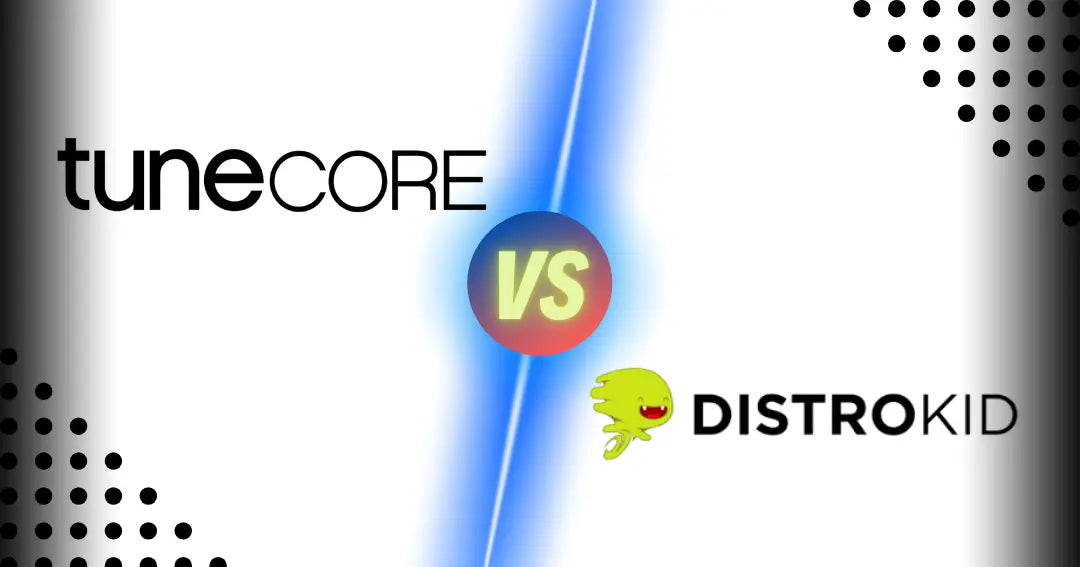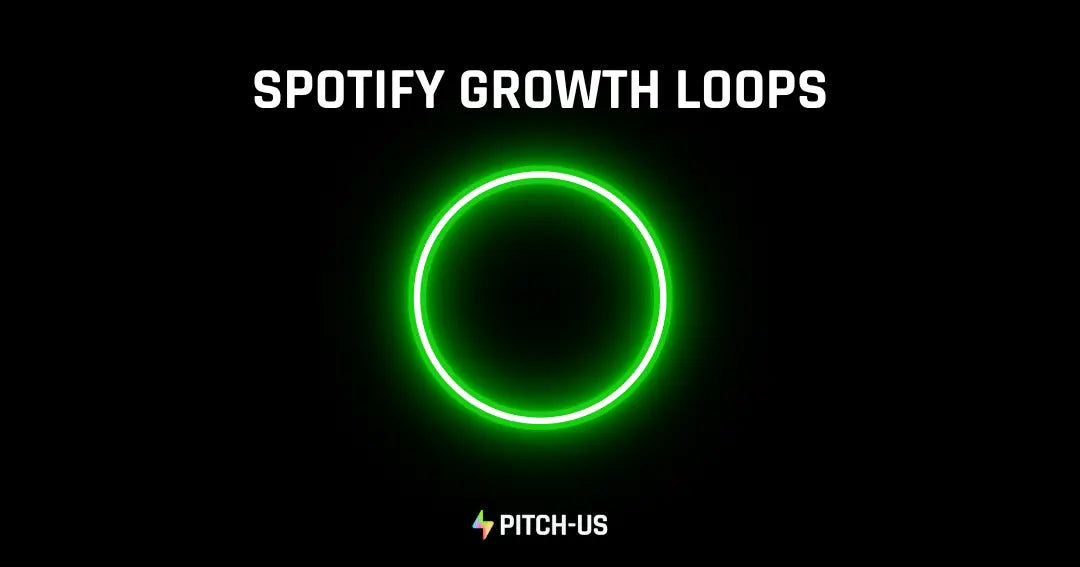Let’s be real - more artists debate which distributor to use than how to write their next verse. And honestly, that makes sense. A misstep here could cost you serious cash before you even hit your first million streams.
In recent years, TuneCore has ramped up big time since its acquisition, while DistroKid keeps expanding faster than anyone predicted. They're both heavy hitters, but many artists still jump ship between them, mostly because they didn’t know what they were getting into.
To save you that headache, we’re breaking it all down. Let’s get into it.
Quick Snapshot: TuneCore vs. DistroKid at a Glance
| Feature | TuneCore | DistroKid |
|---|---|---|
| Entry Price | $22.99/year (Rising Artist Plan) | $24.99/year (Musician Plan) |
| Upload Limit | Unlimited | Unlimited |
| Royalties | 100% (except 20% from TikTok, IG, YT Content ID) | 100% (except 20% from YouTube Content ID) |
| Extra Artists | $14.99/year per added artist | $45/year includes 2 artists |
| Publishing Admin | ✅ Available ($75 + 15% commission) | ❌ Not offered |
| Analytics | Advanced multi-platform insights | Basic metrics |
| Promo Tools | Artist Accelerator, playlist pitching, cover creator | HyperFollow links, promo cards |
| Delivery Time | ~5–7 days | 1–3 days |
| Video Distribution | $19/video/year | $99/year via DistroVid |
| Support | Tiered response (1–5 business days) | Inconsistent (staff cuts affected speed) |
| Ideal For | Business-minded artists with long-term goals | Fast-moving DIY artists dropping frequent singles |
A Closer Look at Each Platform
TuneCore: Veteran Powerhouse with Expanded Services
Founded in 2006, TuneCore helped pioneer the direct-to-platform model for indie musicians. When it launched, unsigned artists couldn’t get their tracks onto major services like iTunes. That changed fast.
With its acquisition by Believe in 2015, TuneCore gained serious backing and expanded its offerings beyond distribution—adding sync licensing, publishing services, marketing support, and more. It’s not just a distributor now; it’s a platform for artists looking to scale their careers.
DistroKid: Simplicity, Speed, and Independence
In contrast, DistroKid emerged in 2013 with a no-frills mission: let artists upload unlimited music for one flat annual fee and keep nearly all their royalties. Its founder, Philip Kaplan, tapped into the frustration many musicians had with complicated systems and high costs.
That simplicity is a big reason DistroKid remains a go-to for artists who prioritize fast releases and low overhead.

7 Key Differences Between TuneCore and DistroKid
1. Pricing and Value
At first glance, their pricing seems similar. But look closer.
DistroKid's base plan starts at $24.99/year but offers limited features. To unlock scheduling tools and extra data, you’ll need to upgrade.
TuneCore’s Rising Artist plan at $22.99/year gives you a bit more flexibility out of the gate. Their higher-tier plans add significant tools for just a modest price bump.
Bonus: DistroKid includes 2 artist profiles for $45/year, while TuneCore charges $14.99/year per additional artist.
Winner: If you're managing multiple acts, DistroKid offers better value. For solo artists who want all the bells and whistles, TuneCore gives more per dollar.
2. Royalty Payouts
TuneCore gives you 100% of streaming/download revenue but takes 20% from TikTok, Instagram, and YouTube Content ID.
DistroKid does slightly better here: you keep all revenue from socials but lose 20% from YouTube Content ID.
Still, some artists claim TuneCore offers better per-stream payouts overall. Reports suggest that for the same streams, TuneCore artists sometimes earn more than DistroKid users.
Winner: Depends where your fanbase is. Crushing it on TikTok? DistroKid. Big on Spotify or Apple Music? TuneCore might pay better.
3. Distribution Reach + Growth Opportunities
TuneCore distributes to 150+ platforms with options for sync licensing, Twitch integration, and territory-specific releases.
DistroKid doesn’t disclose exact numbers, but covers all the key platforms and focuses on rapid turnaround times—often under 72 hours.
Winner: TuneCore for industry connections and career growth tools. DistroKid for pure speed.
4. Analytics and Artist Tools
TuneCore provides deep, daily trend reports and cross-platform insights. Great for data-driven artists.
DistroKid gives basic stats unless you’re on their higher plans—and the interface hasn’t aged well.
In terms of branding:
TuneCore offers a built-in Cover Art Creator (higher-tier only).
DistroKid delivers social-ready mini-videos and smart promo links (like HyperFollow).
Winner: TuneCore is the clear choice for artists serious about understanding and growing their audience.
5. Customer Support
TuneCore responds based on your plan level—Pro artists can expect replies within 24 hours.
DistroKid , following layoffs, now has more inconsistent support. Some users report long delays.
But here’s the kicker: TuneCore has an “F” rating with the Better Business Bureau, suggesting serious gaps in customer satisfaction.
Winner: Neither stands out, but if support is mission-critical, go with TuneCore’s higher-tier plan. Otherwise, expect some self-service.
6. Success Stories and Industry Proof
TuneCore actively promotes case studies:
Alexandra Kay saw over 100 million streams and hit #1 on iTunes after joining their Accelerator program.
LEXXE landed multiple editorial playlists through their playlist pitching support.
DistroKid doesn’t publish case studies but has helped viral artists like Arizona Zervas and has strong indie street cred.
Winner: TuneCore for tangible career development. DistroKid for raw speed and viral potential.
7. Which Distributor Is Right for You?
Choose TuneCore if:
You want deep data insights and real publishing admin
You’re aiming for sync placements in film/TV
You need support for complex revenue splits
You treat your music like a business, not just a hobby
Choose DistroKid if:
You release music frequently and want it out fast
You prefer a hands-off, low-cost approach
You don’t need advanced marketing or publishing features
You're okay with fewer perks in exchange for simplicity

Final Thoughts
There’s no universal “best” distributor—only what’s best for you.
If you're laser-focused on growth, career development, and industry connections, TuneCore offers a powerful, all-in-one solution. But if your goal is to release consistently and cost-effectively with minimal fuss, DistroKid still reigns as the fastest and simplest option out there.
Whichever path you choose, just make sure you understand what you're signing up for—before the beat drops.





Leave a comment
This site is protected by hCaptcha and the hCaptcha Privacy Policy and Terms of Service apply.